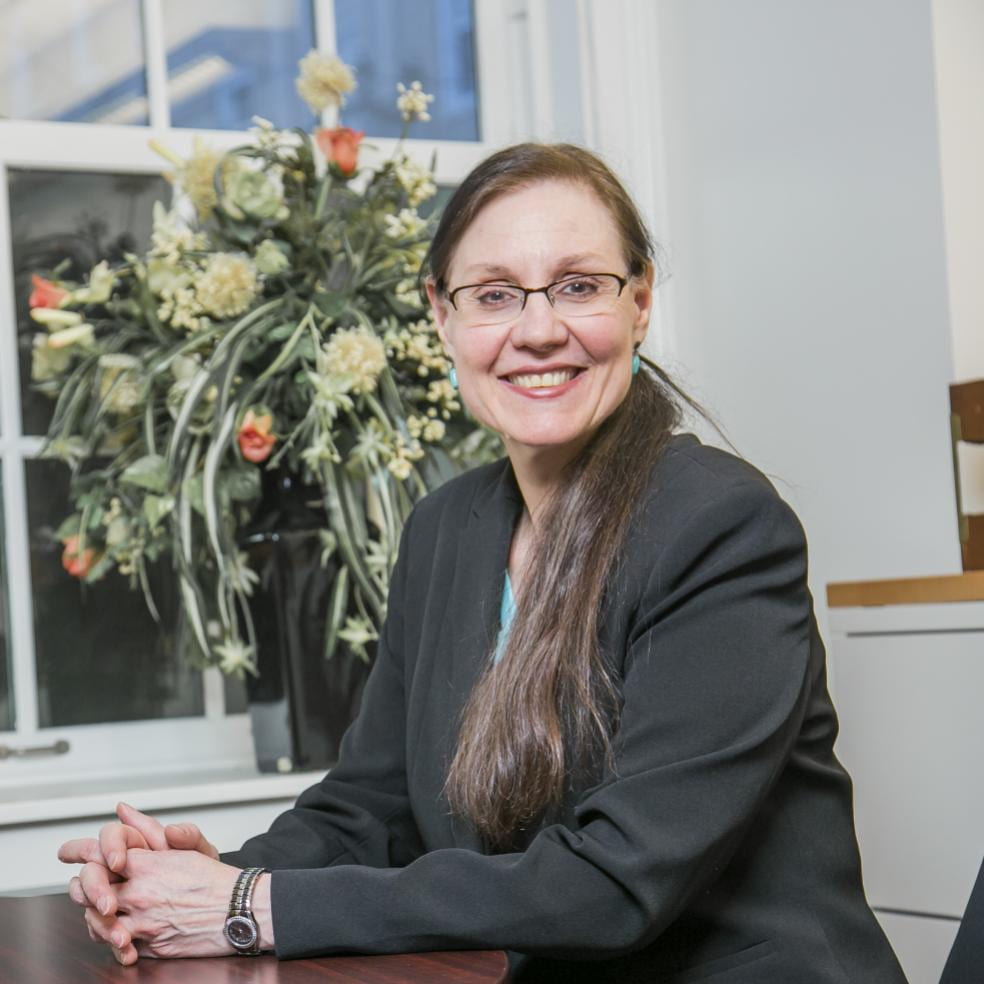
APS Roundtable: Psychological Science and COVID-19, What We Know and What We Can Do
On March 18, the Association for Psychological Science convened a virtual roundtable of four APS members who discussed the psychological dimensions of COVID-19 and how it is affecting both society and individuals. The online gathering produced intriguing insights on the pandemic and the research-based actions we can take to minimize its impact.
Panelists included Bethany Teachman (University of Virginia), Katie McLaughlin (Harvard University), Valerie Reyna (Cornell University), and Andreas Olsson (Karolinska Institutet).
Before we begin, let us go around the virtual table and introduce ourselves and our particular areas of expertise.
I am Bethany Teachman, and I am a professor and director of clinical training at the University of Virginia in Charlottesville, and I think the primary reason I’m on the panel is that I study anxiety and emotion dysregulation and how people think differently when they’re anxious and what kinds of things we can do to try to manage that.
This is Katie McLaughlin. I’m a professor at Harvard University in the psychology department and my research focuses on how experiences of stress influence the way we think, our emotions, our ability to regulate our emotions, and our health.
I’m Valerie Reyna, a professor at Cornell University where I direct the Human Neuroscience Institute and I study risk communication and medical decision making. My research is about how people interpret the gist of risks, so that they can bring values to bear on their choices and lead healthy lives.
And I am Andreas Olsson, a professor at the Karolinska Institute in Sweden. I’m directing a lab with a research focus on fear and defensive behaviors. We are inspired by a cross-species approach with a focus on experimental work in humans, and we are particularly interested in how fear and anxiety spreads across individuals, which is termed social fear learning.
The COVID-19 pandemic can be seen as a “collective crisis.” Does this perspective change the way people adapt to and manage the situation?
Bethany Teachman: This is a situation that can have both positive and negative effects as a function of it being a collective crisis. On the positive side, there is a sense that we’re in it together and we see many amazing examples of people supporting one another. On the negative side, we see some people respond to this with a sense that they need to “protect their own” and it is “us versus them.”
Valerie Reyna: And many people are feeling both impulses at the same time. They’re obviously going to feel fear because of the uncertainty, the present threat, and the potential threats. And the social cues around people right now are going to raise their perception that we’re in danger. Then there’s the talk of the long-term impact to the economy too, and you have a real recipe for people to be anxious and frightened.
Andreas Olsson: The good side of this [being a collective crisis] is that sharing others’ anxieties and fears can motivate us to help each other, but the flip side is that sharing others' anxiety can cause a lot of suffering for some individuals. Today, when some people are monitoring the situation 24/7, that means they have exposure to a lot of suffering […] and this takes a big toll.
Katie McLaughlin: Psychological science has taught us quite clearly that in situations of mass trauma or mass stressors, like a natural disaster or a terrorist attack, there’s a very clear link between the degree of media exposure that people have and their symptoms of anxiety, depression, and substance abuse. People [should be] very mindful about how they’re engaging with media accounts of the virus in the current crisis and to try to limit exposure.
With the seemingly unrelenting stressors we are dealing with, is there a psychological equivalent to a low-grade fever that people may be experiencing?
Katie McLaughlin: This is unquestionably a period where people are experiencing an enormous amount of stress, given the large demands that the situation is placing on our daily lives—the changes in our routines and structures that we typically rely on, and the uncertainty surrounding how long this is going to last and what the ultimate impact is going to be on our families, on our communities, and on our workplaces. […] So absolutely, this is a period of time when people are likely going to be noticing higher levels of anxiety and depression than they might normally experience.
Bethany Teachman: It’s reasonable to have some anxiety and sadness. At the same time, it’s important not to get stuck there. There are a number of things that we can do to maintain as much of our normal lives as possible.
The first area is relationships. Social distancing does not have to equal social isolation. Those are two very different concepts and virtual interaction can make a big difference.
The second is thoughts and feelings. It really doesn’t help us to spend 10 hours a day scrolling through newsfeeds and posts on COVID-19. So in a number of anxiety treatments, we encourage people to pick a couple of times a day when they focus on their worries and get the information that they need to problem-solve but then spend the rest of their time living their lives as normally as possible.
The third piece is standard behavioral self-care. A lot of what helps at this time is healthy eating, sleep, exercise, and perspective-taking so that you don’t get stuck in assuming the worst.
And the fourth is to live your values. So be kind to yourself and be kind to others. This is a stressful time and anxiety is normal. We have to give ourselves permission to experience the feelings that we’re having and then to try to do as much as we can to maintain normality in the face of that situation.
Andreas Olsson: In the long run, if we would continue keeping up the vigilance and being stressed over time, this will definitely lead to a number of very bad consequences for us as individuals as well as society. We know that a long-term anxiety [can worsen attention spans], memory, and immune-system responses. So there’s a number of bad consequences in keeping this chronic anxiety for a longer period of time.
Katie McLaughlin: Social relationships are an incredibly important buffer against the negative consequences of stress. We know that having strong emotional support not only prevents anxiety and depression in periods of stress but also buffers against the negative physiological consequences of stress on the immune system and physical health. One of my very favorite studies shows that stress-buffering effects that you get from receiving social support you also get when you give social support to other people. And this is something that people can control right now—the degree of support they provide to others, including members of our communities who are more vulnerable.
Valerie Reyna: Human behavior is affecting everything from the stock market to the actions people take or don’t take to reduce risk, like social distancing. Behavior will determine the actual public health risk in the end. If we’re able to understand why behaviors are risky, and therefore follow appropriate guidelines, we will have a far better outcome than if we don’t.
From your experience, what is one thing psychological science tells us that we should know?
Valerie Reyna: One of the most important fundamental findings that informs what we’re dealing with right now is that people react to the gist of the events rather than the details and the facts. It’s how people interpret reality that governs their emotions and their actions, not the actual reality itself. So we have to think about this torrent of information washing over everybody. How can we help people extract the bottom-line gist of that information so that they can take effective action?
Bethany Teachman: We are not just passive recipients of what is happening. […] We can collectively work together to respond to this situation as a challenge, as opposed to appraising it as an impossible threat that we cannot manage.
Katie McLaughlin: Giving support to other people is just as effective at helping to reduce stress responses and the negative consequences of stress for our physical and mental health as receiving support from others.
We know very clearly that exposing yourself to a lot of media coverage about the pandemic is going to increase anxiety. The more we can create positive habits and boundaries around our exposure to media, the better.
Andreas Olsson: We not only have to understand our ability in our agency, but we also have to know the limitations of our minds. We really need to spend time trying to trust the experts. We have physicians and epidemiologists who are really good at explaining the effects of the virus on society. We also have psychologists who are really good at giving advice on how to cope with isolation, fear, and anxiety. In uncertain times like now, when it is impossible to have a full understanding of the situation, we need to rely on trusted sources of information.




 Whether the decision is to have unprotected sex, consent to surgery, spend rather than save for retirement, or have an extra piece of pie, risky decisions permeate our lives, sometimes with disastrous consequences. How and why risk taking occurs has important implications, yet many questions remain about how various factors influence decision-making.
Whether the decision is to have unprotected sex, consent to surgery, spend rather than save for retirement, or have an extra piece of pie, risky decisions permeate our lives, sometimes with disastrous consequences. How and why risk taking occurs has important implications, yet many questions remain about how various factors influence decision-making.








